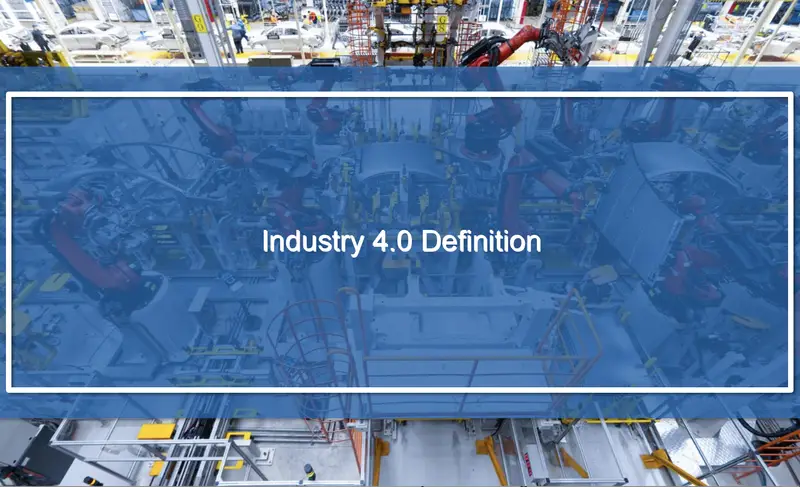Introduction
Contents
Industry 4.0, also known as the Fourth Industrial Revolution, is a term that refers to the ongoing automation and digitization of traditional manufacturing and industrial practices—integrating advanced technologies, such as artificial intelligence, robotics, the Internet of Things (IoT), cloud computing, and big data analytics, into the manufacturing processes.
Key Technologies of Industry 4.0
Industry 4.0 relies on several key technologies that enable the transformation of traditional industries. These technologies include:
- Artificial Intelligence (AI): AI enables machines to perform tasks that typically require human intelligence, such as visual perception, speech recognition, and decision-making.
- Robotics: Robots are used to automate repetitive and labor-intensive tasks, improving efficiency and productivity in manufacturing processes.
- Internet of Things (IoT): IoT connects physical devices and objects to the Internet, allowing them to collect and exchange data. This enables real-time monitoring and control of manufacturing processes.
- Cloud Computing: Cloud computing provides on-demand access to a shared pool of computing resources, enabling scalable and flexible data storage and processing.
- Big Data Analytics: Big data analytics involves the extraction of valuable insights from large and complex datasets. It helps in making data-driven decisions and optimizing manufacturing processes.
Benefits of Industry 4.0
The adoption of Industry 4.0 brings numerous benefits to businesses and industries. Some of the key benefits include:
- Increased Efficiency: Industry 4.0 technologies automate processes, reduce human error, and optimize resource utilization, improving efficiency and productivity.
- Cost Reduction: Automation and predictive maintenance help reduce operational costs and minimize downtime.
- Enhanced Quality Control: Real-time monitoring and data analytics enable proactive quality control, ensuring consistent product quality.
- Customization and Personalization: Industry 4.0 enables mass customization and personalized production, allowing businesses to meet individual customer needs.
- Improved Safety: Collaborative robots and advanced safety systems enhance workplace safety by reducing the risk of accidents.
Case Studies
Several companies have successfully implemented Industry 4.0 technologies and witnessed significant improvements in their operations. Here are a few notable case studies:
1. Siemens
A global technology company, Siemens implemented Industry 4.0 technologies in its manufacturing processes. By leveraging IoT, AI, and big data analytics, Siemens achieved a 10% increase in productivity and a 20% reduction in time-to-market for its products.
2. BMW
BMW, a leading automobile manufacturer, embraced Industry 4.0 to optimize its production processes. The company implemented robotics and AI to automate assembly lines, resulting in a 30% reduction in production time and improved product quality.
3. General Electric
General Electric (GE) utilized Industry 4.0 technologies to transform its maintenance operations. By implementing predictive maintenance and IoT-enabled sensors, GE reduced unplanned downtime by 20% and achieved cost savings of $100 million.
Summary
Industry 4.0 represents the convergence of advanced technologies to revolutionize traditional manufacturing and industrial practices. It offers numerous benefits, including increased efficiency, cost reduction, enhanced quality control, customization, and improved safety. Companies like Siemens, BMW, and General Electric have successfully implemented Industry 4.0 technologies and significantly improved their operations. Embracing Industry 4.0 is crucial for businesses to stay competitive in the rapidly evolving digital landscape.
Q&A
1. What is Industry 4.0?
Industry 4.0 refers to automating and digitizing traditional manufacturing and industrial practices, integrating advanced technologies like AI, robotics, IoT, cloud computing, and big data analytics.
2. What are the key technologies of Industry 4.0?
The key technologies of Industry 4.0 include artificial intelligence, robotics, the Internet of Things, cloud computing, and big data analytics.
3. What are the benefits of Industry 4.0?
Industry 4.0 brings increased efficiency, cost reduction, enhanced quality control, customization, and improved safety.
4. Can you provide some case studies of successful Industry 4.0 implementations?
Companies like Siemens, BMW, and General Electric have successfully implemented Industry 4.0 technologies and significantly improved their operations.
